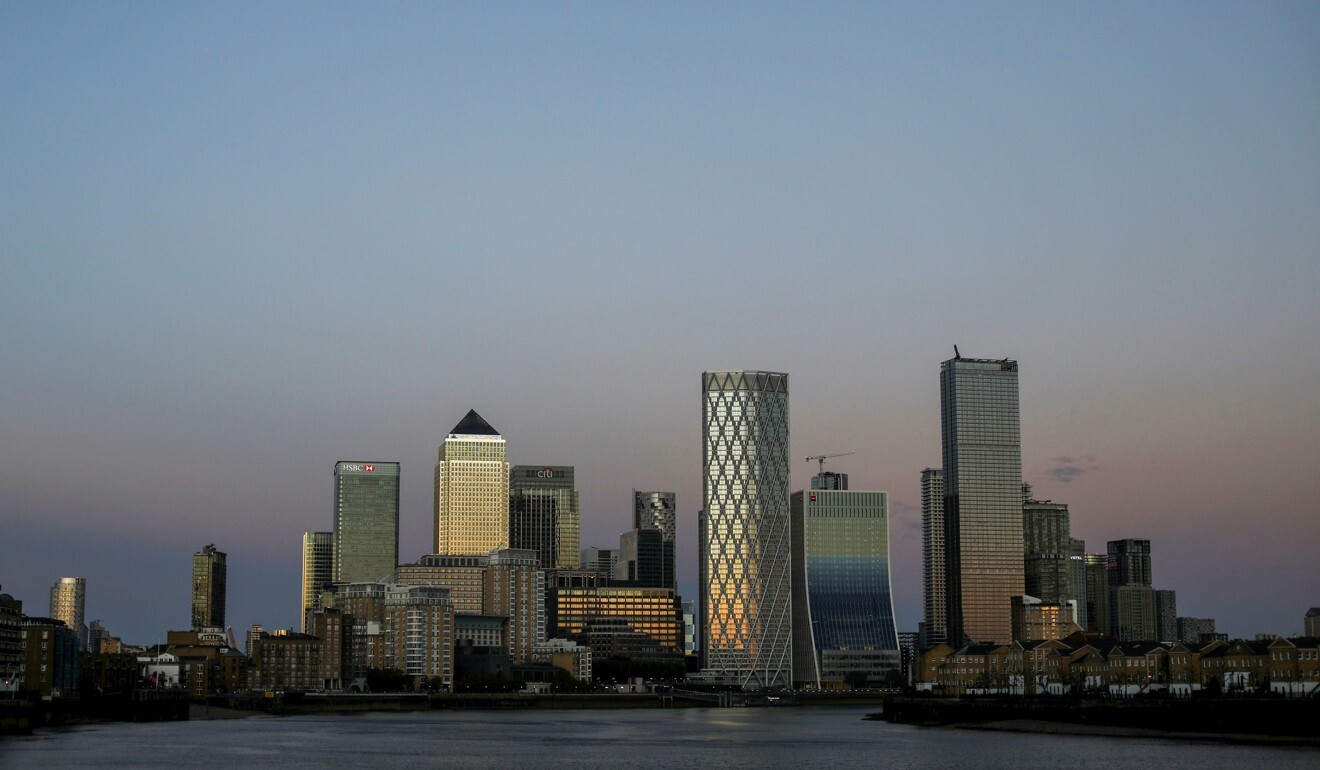
Despite Brexit and coronavirus, Asian investors are snapping up London office buildings
- London’s office market faces the triple whammy of the coronavirus, Brexit and an economic slump. But Asian buyers are taking advantage of the silver linings: higher yields than in Europe and less competition from European buyers
What is more, Britain-based financial firms have lost their passport to offer services across the EU, a blow that has already forced some companies to shift jobs and assets – hitherto on a much smaller scale than many had feared following the 2016 Brexit vote – to rival financial centres in Europe.
In London’s office market, the triple whammy of the virus-induced shift to mass homeworking, Brexit-related uncertainty and brutal declines in economic output has pulled the rug out from under the occupier and investment markets.

01:45
UK stranded truckers scuffle with police as they wait to leave UK after COVID blockade
Leasing activity in Central London was down 60 per cent year on year in the first three quarters of last year, while transaction volumes fell 45 per cent, according to data from JLL. London’s office market is particularly vulnerable due to the dominant role of overseas buyers in investment activity.
However, in a sign of the enduring appeal of the British capital’s real estate market to foreign investors, Asian buyers were in an acquisitive mood. Indeed, several of the biggest deals last year were maiden transactions by Asian investors in Britain.
Yet, the underlying attractiveness of the property – a high-quality, stable income-producing asset in one of the world’s most liquid and transparent markets, and one of Canary Wharf’s few freehold premium buildings bought at a relatively high rental yield of 5 per cent – outweighed Brexit and Covid-19-related concerns.
While there is a heated debate over the level of demand for office space in the post-pandemic world, and London is under intense scrutiny given that the vast majority of workers travel by Tube or train, the virus is likely to result in a more bifurcated market.

Offices that meet the post-pandemic standard – a strong emphasis on health and well-being, more space for collaboration and proximity to key transport hubs – are likely to command higher rents and capital values. Indeed, a virus-induced migration of Londoners to the suburbs or rural locations is likely to increase demand for high-quality and well-located offices.
This was part of the rationale behind last month’s purchase by Sun Venture, a Singaporean asset manager, of 1&2 New Ludgate, a prestigious five-year-old office complex in the City of London, for £552 million, the largest commercial property deal in Britain last year, and Sun Venture’s second deal in London following its maiden acquisition in Britain in July.
Just as importantly, Asian investors – many of whom are under pressure to diversify away from relatively small domestic markets, and who often target trophy assets – are taking advantage of the silver linings of Brexit and the pandemic: higher yields than in gateway cities in Europe and less competition from European buyers.
Ricky Au, the chairman of Sun Venture, says the twin shocks “provided a window of opportunity to enter [the London market] when competition for assets would otherwise probably have been much keener”.

03:57
Coronavirus: what we know so far about the new strain of Covid-19
However, regardless of the damage caused by Brexit and Covid-19, Asian investors’ appetite for London commercial real estate has remained strong since buyers from the region began snapping up landmark assets almost a decade ago, led by Chinese and Hong Kong purchasers.
Although more attractive returns and ultra-low interest rates are key factors, the prestige and safety of a high-profile property in Britain’s capital are equally important to Asian investors. “Many are looking for a piece of historic London,” says Chris Pilgrim, head of the global capital markets teams for Southeast Asia at CBRE in Singapore.
While doubts persist over London’s post-Brexit status as Europe’s dominant financial centre, and the pandemic has further dented Britain’s reputation, Asian investors’ love affair with London shows no signs of waning.
Nicholas Spiro is a partner at Lauressa Advisory

